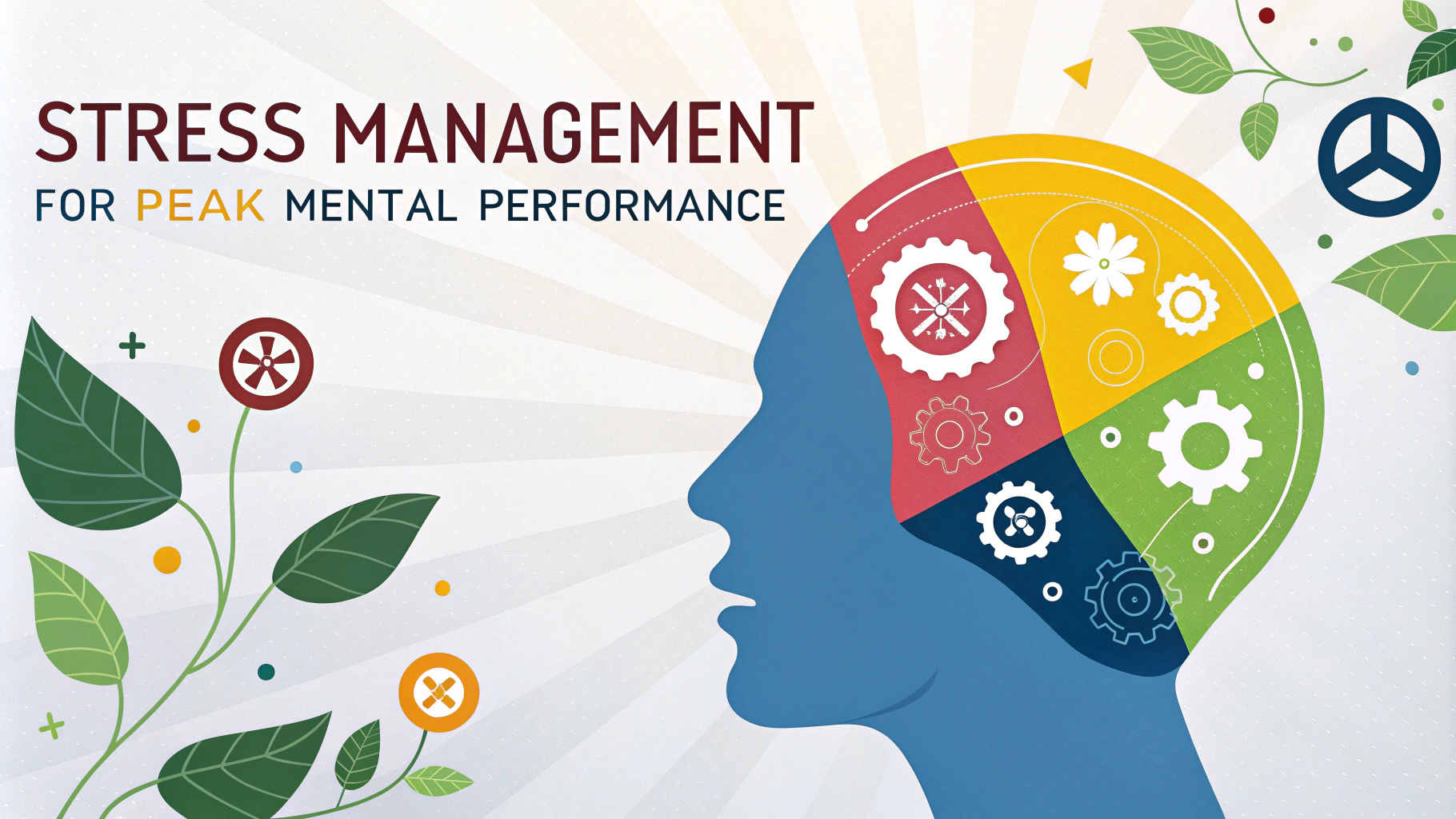Getting quality sleep directly impacts how well we remember and learn new information.
This quick guide shows practical ways to optimize your sleep for better memory and faster learning.
The Sleep-Memory Connection
During sleep, your brain moves information from short-term to long-term memory through a process called memory consolidation.
Key Sleep Stages for Learning
- REM sleep: Essential for processing complex information
- Deep sleep: Helps solidify factual information
- Light sleep: Supports skill-based learning
Sleep Optimization Tips
Environment Setup
- Keep room temperature between 60-67°F (15.5-19.4°C)
- Use blackout curtains or a sleep mask
- Maintain quiet or use white noise
- Remove electronic devices or use night mode
Timing Strategies
- Go to bed and wake up at consistent times
- Plan for 7-9 hours of sleep
- Study difficult material before sleep
Pre-Sleep Routine
- Stop screen use 1 hour before bed
- Take a warm shower or bath
- Practice relaxation techniques
- Review learning materials lightly
Recommended Products
| Item | Purpose |
|---|---|
| Philips SmartSleep Wake-up Light | Natural wake cycle regulation |
| Mack’s Ultra Soft Foam Earplugs | Noise reduction |
| Alaska Bear Natural Silk Sleep Mask | Light blocking |
Sleep-Learning Schedule Example
9:00 PM – Review study materials
9:30 PM – Light stretching or meditation
10:00 PM – Bedtime
6:00 AM – Wake up
6:15 AM – Quick review of previous night’s material
When to Seek Help
Contact a sleep specialist if you experience persistent sleep issues despite following these guidelines (Find accredited sleep centers).
Common Warning Signs
- Taking more than 30 minutes to fall asleep
- Waking up multiple times during the night
- Feeling tired despite adequate sleep time
- Difficulty concentrating during the day
Track your sleep patterns using apps like Sleep Cycle or Fitbit to identify areas for improvement.
Maximizing Learning Benefits
Study Integration
- Space out learning sessions throughout the day
- Take short power naps (20-30 minutes) between study sessions
- Review important information right before bedtime
- Practice recall exercises in the morning
Diet Considerations
- Avoid caffeine 6 hours before bedtime
- Eat sleep-promoting foods (cherries, nuts, whole grains)
- Stay hydrated but reduce fluid intake before bed
- Consider magnesium-rich foods for better sleep quality
Advanced Sleep Techniques
Memory Enhancement
- Use aromatherapy (lavender, chamomile) while studying and sleeping
- Practice visualization exercises before sleep
- Implement memory-linking techniques during study sessions
- Create mind maps before bedtime
Conclusion
Quality sleep is fundamental for effective learning and memory retention. By implementing these evidence-based strategies and maintaining consistent sleep habits, you can significantly enhance your learning capabilities and memory consolidation.
Remember to:
- Maintain a regular sleep schedule
- Create an optimal sleep environment
- Monitor your sleep patterns
- Adjust strategies based on personal results
Start with small changes and gradually incorporate more techniques as you develop your optimal sleep routine.
FAQs
- How many hours of sleep are optimal for memory consolidation and learning?
Most adults need 7-9 hours of quality sleep per night. Research shows that this duration allows for complete sleep cycles necessary for memory consolidation and cognitive processing. - What is the best sleep phase for memory retention?
Slow-wave sleep (SWS) and REM sleep are most crucial for memory retention. SWS occurs in the first half of the night and helps consolidate factual memories, while REM sleep later in the night processes procedural memories. - Does napping help with learning and memory?
Yes, a 20-90 minute nap during the day can enhance memory consolidation. The optimal nap duration depends on your schedule, with 90-minute naps including a complete sleep cycle. - What’s the ideal room temperature for optimal sleep and learning?
The optimal sleeping temperature is between 60-67°F (15-19°C). This range helps maintain the body’s natural temperature drop needed for quality sleep and memory processing. - How long before bedtime should I stop looking at electronic screens?
Stop using electronic devices 1-2 hours before bedtime. Blue light from screens suppresses melatonin production, disrupting sleep patterns and affecting memory consolidation. - Does exercise impact sleep quality and memory retention?
Regular exercise improves sleep quality and memory, but should be completed at least 3 hours before bedtime. Morning or early afternoon exercise shows the best results for sleep optimization. - What foods can improve sleep quality for better learning?
Foods rich in tryptophan, magnesium, and complex carbohydrates support better sleep. Examples include turkey, nuts, whole grains, and cherries, which contain natural melatonin. - How does sleep deprivation affect learning and memory?
Even one night of poor sleep can reduce memory formation by up to 40%. Chronic sleep deprivation impairs attention, learning capacity, and both short-term and long-term memory. - What is the best position to sleep for optimal brain function?
Side sleeping, particularly on the right side, has been shown to help clear brain waste and potentially improve memory processing during sleep through better glymphatic system function. - Should I review learning material right before sleep?
Yes, reviewing information shortly before sleep can improve retention, as the brain consolidates recently learned information during sleep. However, avoid intensive studying that might increase mental arousal.








